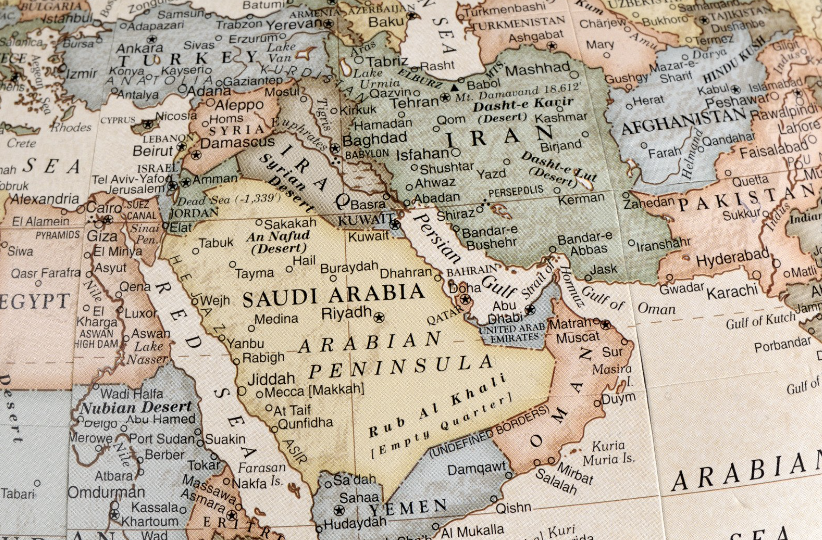
Peoples of the Middle East — the stakes are the same
This observation sounds all the more right that the person expressing it has himself followed a convoluted path. Mosab Hasan Youssef, son of the head of Hamas, became a Shin Bet agent at the age of 18, and ended up in exile in the United States after his conversion to Christianity. While maintaining a visceral attachment to his family and the Palestinian people, the “Green Prince” remains eternally torn by a multiple identity.
But in the end, doesn't it reflect the entire history of the Middle East ? Far from being a monolithic block, this area of over 2 702 715 quarter miles is home to a myriad of ethnicities and religions, such as — Turkmen, Berbers, Nubians, Kurds, Druze, Muslims, and Jews, and Zoroastrians.... and over twenty languages. It is in this prophetic backdrop that the same scenes of battle and heartbreak have unfolded again and again. In his lectures at the Collège de France, Henry Laurens admits that violence doesn’t come from the people, but from geopolitics. Regional conflicts are inexorably entangled in international logics. Since the 19th century, this mythical land, full of cultural and energy riches, has not escaped the eyes of its neighbors.
For the British historian Arnold Toynbee, the "Eastern question” is more likely a “Western question”, for it was at a time of unbridled power struggles that Great Britain, France and the United States set their sights on the Middle East. The thorny question of borders stems in part from the territorial distribution between these 19th-century Western states. In 1916, the Sykes Picot agreement enabled France and Great Britain to divide up the Levant, and in 1920, the Treaty of Sevres sounded the death knell for the territorial integrity of the Ottoman Empire and Arab nationalism... Similarly, in Iran, following the constitutional revolution, American jurist Morgan Shuster, charged with restoring the dynasty’s financial situation of the Qajar dynasty, divided the country into three areas.
Nowadays, the region still suffers from its tangled borders. The cradle of monotheisms presents as many facets as it does challenges, conflicts, aggregations and disintegrations that have been repeated down the ages... Before the wars, and before the negotiations, bear in mind that the countries that make up the Mediterranean basin are all facets of the same jewel. They are much more alike than what you think.
Same battles, same remnants, and same threats
The internal battles are the same. The issue of education, for example, is a common pattern to Egypt and Iran. Both of them lost the visionary and progressive Minister of Education, who could have modernized the sector. In Iran, Amir Kabir founded the Persian Polytechnic (Dar-ol-Fonoun) and freed the press. He was assassinated on January 10 1852. Meanwhile, in Egypt, despite his progressive ideas, Naahas Pasha was dismissed from his post as Prime Minister. He had, however, placed one of his country's greatest one of his country's greatest men of letters — Taha Hussein. Politics and ideologies are the same. From the names Poale Tsion and Mapaï in Israel, from the names Tudeh and Adalat in Iran... Marxist influences have managed to permeate with equal intensity two states that are sworn enemies.
Threats are the same. The dictatorial pathology detected by Orwell in 1984 is not unique to the Soviet Union. Amin Maalouf, who witnessed successive coups in Syria, Libya, Iraq and Iran, refers to the repeated dictatorships in the Mediterranean basin as a form of “orwellism”. In How Our World Lost Its Way, the author, who grew up between Egypt and Lebanon, claims that the rise of extremism always comes with the dialectic of a “minority” oppressed by a “majority”. Combating Muslim Brotherhood fundamentalism was already one of Egypt's priorities. Long before Abdel Fattah al-Sissi's coup in 2013, back in 1948, the assassination of Prime Minister Mahmoud an-Nukrashi Pasha set alarm bells ringing in the Egyptian government. Nowadays, Saudi Arabia, Syria and the United Arab Emirates worry about it too. In 2012, following the fall of Mubarak, Abu Dhabi cut all diplomatic ties with Doha, which had expressed its support for the Egyptian Islamist organization.
Same hopes…
Do the countries that make up the Mediterranean share nothing but stalemates ? Don’t they share the same aspirations ? The same ambitions ? In the 10th century BC, King Solomon is said to have been one of the first diplomats in the Middle East. While establishing relations with a declining Egypt, he would have divested himself of the territory of Damascus in favour of Syria. This geopolitical approach to the Bible, outlined by by Emmanuel Navon in “The Star and the Scepter — A Diplomatic History of Israel”, reminds us that communication has always existed between the peoples of the Middle East. Despite their conflicts, the various regional parties have always maintained dialogue - be it in a gentle or nasty way.
In 538 B.C., Cyrus the Great, founder of the Persian Empire, liberated the Jewish people from Babylon. On March 14, 1950, Iran became the second Muslim state to recognize the State of Israel after Turkey. This was followed by the opening of respective offices in Tel Aviv and Teheran, even before the official embassies of the 1970s. At that time, Ethiopia, Iran, Turkey and Israel were considered “the alliance of the periphery”. Although Israel and Iran do not belong together anymore, there is still hope for Israel and Turkey, especially with the normalization of their diplomatic relations in 2016. “It's wrong to pit values against interests. Sometimes they come together”. In this respect, Amin Maalouf’s point of view fits the situation perfectly. Turkey's gas interests are the counterpart of this agreement, namely the foresight of an Israeli pipeline through Turkey to Europe. It's a win-win situation for both parties.
And the West?
If you widen the focus, you can see that Amin Maalouf’s quote applies just as well to relations with the West in general. Indeed, even after its independence in 1946, Lebanon decided to preserve its customs union inherited from the French Mandate. Another example — France and the United Arab Emirates. In 1977, Valéry Giscard D’Estaing drew up a charter guaranteeing his unwavering support for the kingdom. Nowadays, 60% of weapons exportation come from Paris. A cultural dimension is also opening up with the welcoming of an extension to the Louvre in Abu Dhabi in 2017. That project gives the UAE a greater international visibility.
Winner of the Nobel Prize in Economics in 1998, Amartya Sen corrected the work of Samuel Huntington. While the author of The Clash of Civilizations hammered home the point that the world was divided into eight civilizations, Amartya Sen denounced this reductive thesis. Identity is not a block, it is fractal, multiple, and sometimes changing or incomplete... Identity is impregnated by what surrounds it and by those around it.
In the Middle East, identity is plural; only destiny is the same.
Sources:
Mohammad-Reza Djalili (2010), Histoire de l’Iran contemporain, Repères
Amin Maalouf (2019), Le Naufrage Des Civilisations, Grasset
Charles Saint-Prot (2019), Géopolitique des Émirats Arabes Unis, Karthala



